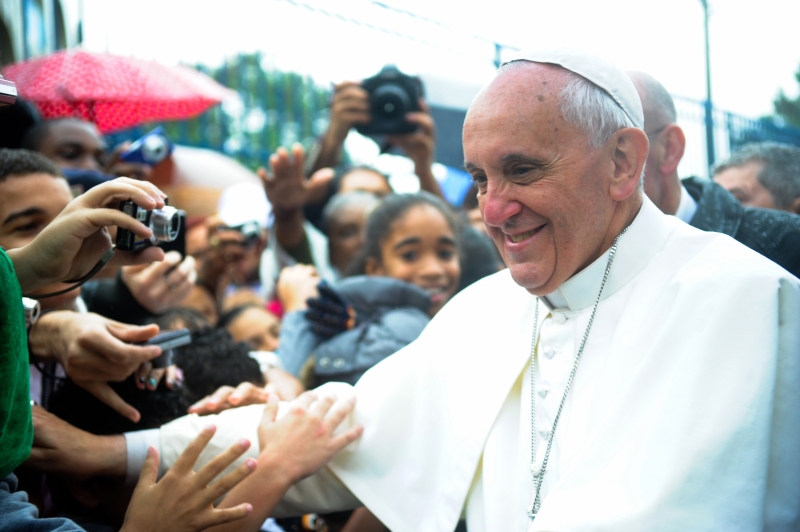By Katie Pohlman
Local faith communities are studying Pope Francis’ Laudato Si’ encyclical on the world’s environmental problems and are considering what actions their congregations can take.
“The Earth, our home, is beginning to look more and more like an immense pile of filth,” the Pope wrote in his encyclical. “In many parts of the planet, the elderly lament that once beautiful landscapes are now covered with rubbish.”
In his encyclical, the Pope linked much of the destruction in the environment to human actions. Although clearly known as a religious leader, he also has a scientific background, earning a bachelors degree in chemistry at the University of Buenos Aires before beginning his Jesuit training in Villa Devoto in Buenos Aires, Argentina.
“We have come to see ourselves as (the Earth’s) lords and masters, entitled to plunder her at will. The violence present in our hearts, wounded by sin, is also reflected in the symptoms of sickness evident in the soil, in the water, in the air and in all forms of life,” Pope Francis wrote.
He called for multiple lines of approach in the 191-page document posted on the Vatican’s website, including dialogue about the international environmental community, national and local policies, transparency in decision-making by governments and collaboration between religious and science communities.
While some local faith communities have already taken steps to reduce their footprints, many believe there is still much that can be done to help the environment.
Diocese of Kansas City-St. Joseph
At the Diocese of Kansas City-St. Joseph that oversees local Catholic parishes and schools, the planning process begins this week at the U.S. Conference on Catholic Bishops meeting in Washington D.C. The conference will focus on teaching Catholic dioceses across the country more about the encyclical and offering guidance on implementing it.
“In general, the Holy Father wants us to understand that everything, including the health of the planet and people, is interconnected,” said Jack Smith, diocesan director of communication. “We’re not atomized individuals seeking our own good. We’re part of the family of man, and need to make decisions realizing that what we do is connected to everyone.”
Several local Catholic churches and schools have already made a commitment to sustainability in their facilities with projects on energy efficiency, solar energy, recycling, waste reduction and community gardens.
Sustainable Sanctuary Coalition
The Sustainable Sanctuary Coalition helps congregations develop green teams or events by providing them with trainings, resources, tools and strategies, according to the coalition’s website.
The coalition works with 45 green teams — spanning many different faiths from Baptist to Jewish, Catholic to Mennonite — in the Kansas City area. Rev. Chad Cooper, executive director, said helping the environment is a cause that will require everyone to work together.
“The environment affects all different people from all different backgrounds,” he said. “It’s going to take people of faith to come together and work together even if they might not view God the same way or have the same theological viewpoints. The one thing they do have in common is they live on the Earth.”
Sustainable Sanctuary Coalition is hosting an event on Effective Climate Change Communication to address communication between interfaith communities and how to talk about environmental problems in general. The fourth episode of Years of Living Dangerously will be shown, followed by a panel discussion. The event is free and open to the public from 6:30 to 9 p.m., August 3 at the Village Church in Prairie Village, KS. A panel discussion includes Kristin Riott, executive director of Bridging the Gap; Andrew Pratt, vice president for social responsibility and engagement and dean of the chapel at William Jewel college; and Br. Daryl Charron, C.P P.S, religious brother in the Catholic church.
“Using the right kind of language is important so that you don’t alienate certain groups in your congregation,” Cooper said. “In some ways, climate change itself is kind of a polarizing term. We’re really excited to talk about how to communicate about the environment.”
To learn more about the coalition’s event, visit www.ssckc.org.
Saint Andrew Christian Church
The Pope’s words acted as a call to action for faith communities already involved or interested in environmental issues, said Rev. Erin Watthen of Saint Andrew Christian Church.
Story continues on next page…





